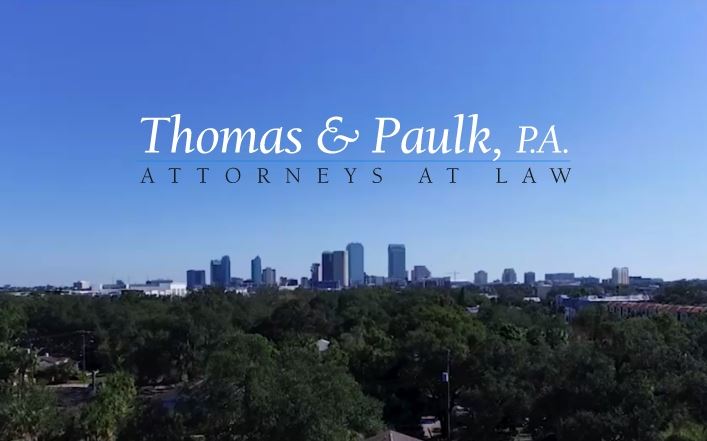
The Florida Criminal Process
Helpful Insight from Leading Criminal Lawyers in Tampa, FL
When dealing with a criminal investigation or an arrest, you likely have a lot of questions. We know this can be one of the most confusing times you will ever experience; without qualified legal guidance, you can be unsure of your next move. That's why we created this website. We hope you will find the information you need to feel prepared to face the future. To help with this, we have given a basic breakdown of the criminal process below.
Know What to Expect After a Criminal Arrest
The first step of many people's involvement with the criminal process is the actual arrest. How this occurs will depend entirely on your exact case. For example, an arrest could happen after a law enforcement officer pulls you over for suspected drunk driving, after months or even years of pre-trial investigation, or after a search of one's property leads to the discovery of allegedly incriminating evidence.
Regardless, law enforcement must have what is known as probable cause. This means they cannot just arrest someone on a whim. There must be hard evidence backing up the fact that you have committed a crime. During the arrest, the officer must read your Miranda rights. This is a warning that lets you know of your rights and gives you a brief overview of what you can expect after being taken into custody.
The Miranda warning tells the defendant the following:
- They have the right to remain silent.
- Anything they say or do may be used against them in court.
- They have the right to consult an attorney before or during questioning.
- If they cannot afford an attorney, one will be appointed for them.
- They have the right to stop answering questions until they talk to a lawyer.
Booking
Following an arrest, the defendant will be placed through the booking process. This is the formal process by which a defendant is entered into the system. After the arrest, they will be taken to the police station. Their information will be gathered there, including their name, birth date, and physical address. The defendant will then be fingerprinted, photographed, and searched. Their personal belongings will be taken from them to be cataloged and stored until they are released from custody.
First Appearance & Pretrial Release
Within 24 hours of the arrest, the defendant will be taken before a judicial officer for their “first appearance.” The judge will inform the defendant of the criminal charges that they are facing. The defendant is NOT required to say anything during the first appearance. They are also freely able to communicate with their legal counsel, as well as any family or friends. If the defendant has retained counsel, the first appearance may be postponed to send for counsel. If they are unable to afford counsel, the judge will immediately appoint counsel on their behalf.
Unless the defendant faces a capital offense during the first appearance, they will be entitled to appropriate pre-trial release. Bail may be granted by something such as a surety bail bond or a recognizance bond. Unless the state has filed a motion for pre-trial detention, the court will determine the bond. It is the responsibility of the judicial officer to ensure that all defendants are treated fairly while the community remains safe and protected. Pre-trial release may also be granted with certain restrictions, such as being placed into another’s custody.
Preliminary Hearings
After charges have been filed, you will have the right to a preliminary hearing. If you choose not to waive this hearing, it will be the prosecution’s responsibility to bring up enough evidence to show that there is probable cause to charge you with the crimes you are facing. This is often known as a “non-adversary probable cause determination.” Typically, it must be done within 48 hours of the arrest.
Arraignment Hearing
The arraignment hearing will include a judge or clerk, the defendant, the defendant's legal counsel, and the prosecution. During this proceeding, done either in open court or by audiovisual device, the defendant will be read the charges and asked to enter their plea. Should the defendant enter a plea of not guilty, they will be given a reasonable amount of time to prepare for trial. If the defendant has legal counsel, they may choose to file a written plea before arraignment; should this occur, the arraignment hearing can be waived entirely.
Read on to continue learning about the criminal process in Florida, or contact Thomas & Paulk for a free, private consultation regarding your case.
Get Helpful Insight
Most people know little about criminal proceedings. This can make an investigation, arrest, or other matter involving criminal charges confusing and frightening. By learning what's involved, you can make better, more informed choices. We're here to help you do that.
More on the Florida Criminal Process
Trial
The "meat" of the process is the actual trial. During the trial, both sides will present their argument to convince the court that the defendant is guilty or innocent. The burden of proof rests on the prosecution; they are responsible for proving guilt. The trial involves several parts, starting with the selection of the jury and the opening statements of prosecuting and defense attorneys. It will then move into witness testimony, cross-examination, and closing arguments. From there, it will proceed into the jury instruction and the verdict itself.
What to Expect During a Tampa DUI Case
The Tampa DUI process begins when you are pulled over by a police officer. DUI arrests may be the result of a variety of circumstances; however, many DUI arrests occur when an officer pulls an individual over for a secondary traffic violation. For instance, an officer may witness a driver run a red light, pull them over, and discover that they are impaired.
The process of a DUI arrest often happens in the following order:
- The officer pulls you over to the side of the road and asks for your license and registration.
- The officer will observe you for signs of intoxication, such as bloodshot eyes or slurred speech.
- The officer may ask you where you were, how much you had to drink, and other questions to gather more information.
- The officer may ask you to step out of the vehicle and perform field sobriety tests.
- You may be asked to perform other field sobriety tests to gauge your balance, coordination, and ability to follow instructions.
- Depending on performance on field sobriety tests, the officer may then arrest you for DUI.
- After your actual arrest, you may be taken to the police station, where you will be asked to submit to a breath test or blood test to determine your blood alcohol concentration.
- Depending on your blood alcohol test results, the officer's observations, and performance on field sobriety tests, you may face DUI charges.
What to Expect During a Tampa DUI Preliminary Hearing
During a preliminary hearing, the judge will listen to arguments for and against your case. The prosecutor will present a case attempting to demonstrate your guilt. The defense lawyer will present a case in favor of your innocence, and the judge will determine if there is enough evidence to proceed to an actual trial.
DUI Trials
DUI trials are comprised of six distinct stages:
- Jury selection
- Opening statements
- Witness testimony / cross-examination
- Closing arguments
- Jury instruction
- Jury discussion & verdict
The DUI trial is the most high-profile stage of the process. Many cases never reach trial because too little evidence is presented in the preliminary hearing or because the defendant pleads guilty during the arraignment.
How Thomas & Paulk, P.A. Can Help Protect You
Being accused of a crime does not mean that you must accept a guilty verdict. A skilled Tampa defense lawyer can evaluate your case and use their experience to find the best possible outcome for your situation.
If you are facing a DUI or other criminal charge, or if you you are under investigation, don't hesitate to involve an experienced Tampa criminal lawyer. If you are looking for an attorney to step up to protect your rights, you need look no further. At Thomas & Paulk, we have more than 20 years of legal experience. We know what is at stake and can sit down with you to explain the criminal process. We can help ensure you know what you are facing and what to expect.
Get your free initial consultation by calling (813) 321-7323 today!
Why Choose Our Tampa Criminal Defense Firm?
-
100% Free ConsultationWe'll hear what happened and explain your legal options to you.
-
Available 24/7No matter what time of day or night you need us, we're here for you.
-
7,000+ Criminal Cases HandledWe have a track record of success in helping people protect their rights.
-
Aggressive Defense StrategiesWe're not afraid to take on complex cases. We fight hard so you can win.
Contact Us
-
We personally handle your defense strategy.
Our lawyers have been helping people just like you defend their future for decades.
View Results -
We always put our clients' cases and needs first.
Read our reviews to see what it is like working with our Tampa criminal defense law firm.
See Success Stories -
We're ready to hear your side of the story.
Tell us what happened to you during a completely free and confidential consultation.
Contact Us



